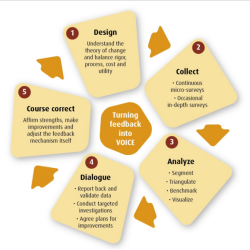Funders and feedback; putting their money where their mouth is
Last summer, the Blagrave Trust with support from Keystone Accountability set out to learn more about what youth-oriented charities do to listen and respond to the young people they help. Keystone spent time with key staff from eight Blagrave partners to understand and document their youth feedback related practices. Among the eight partners, there was[…]


